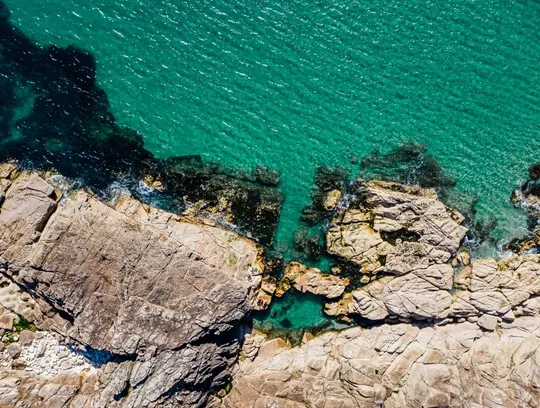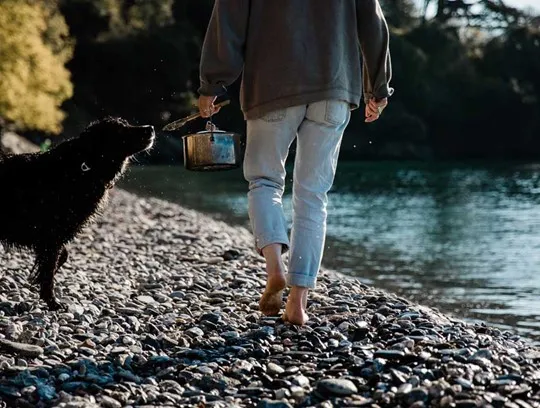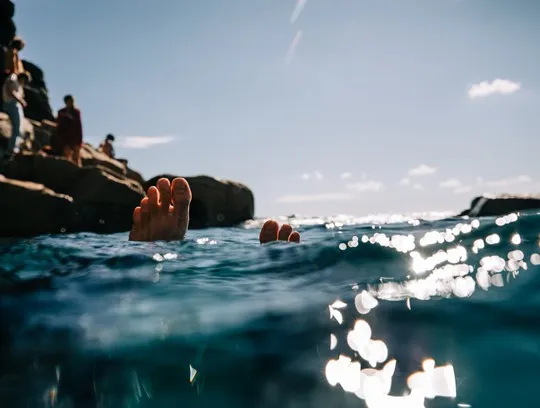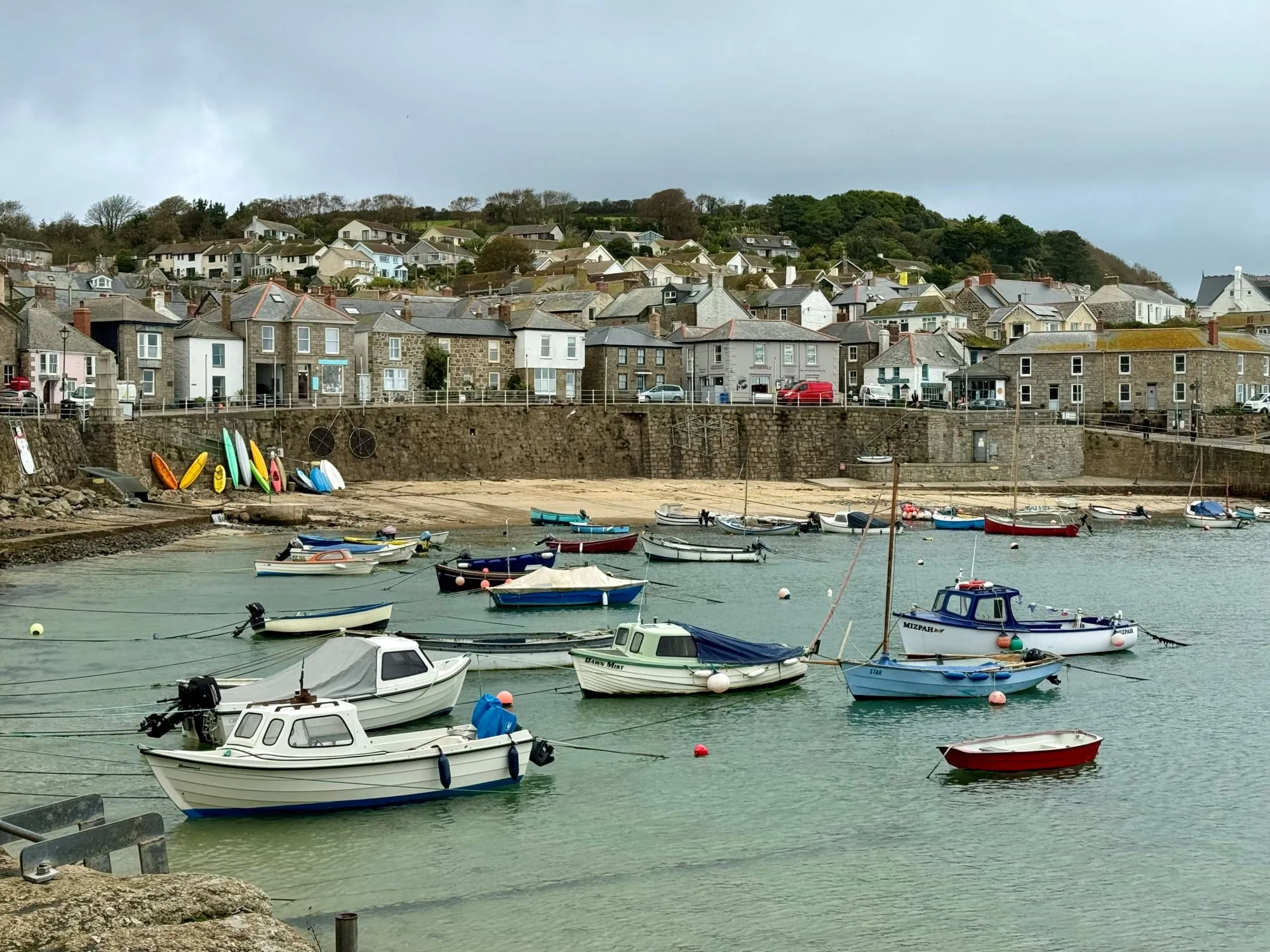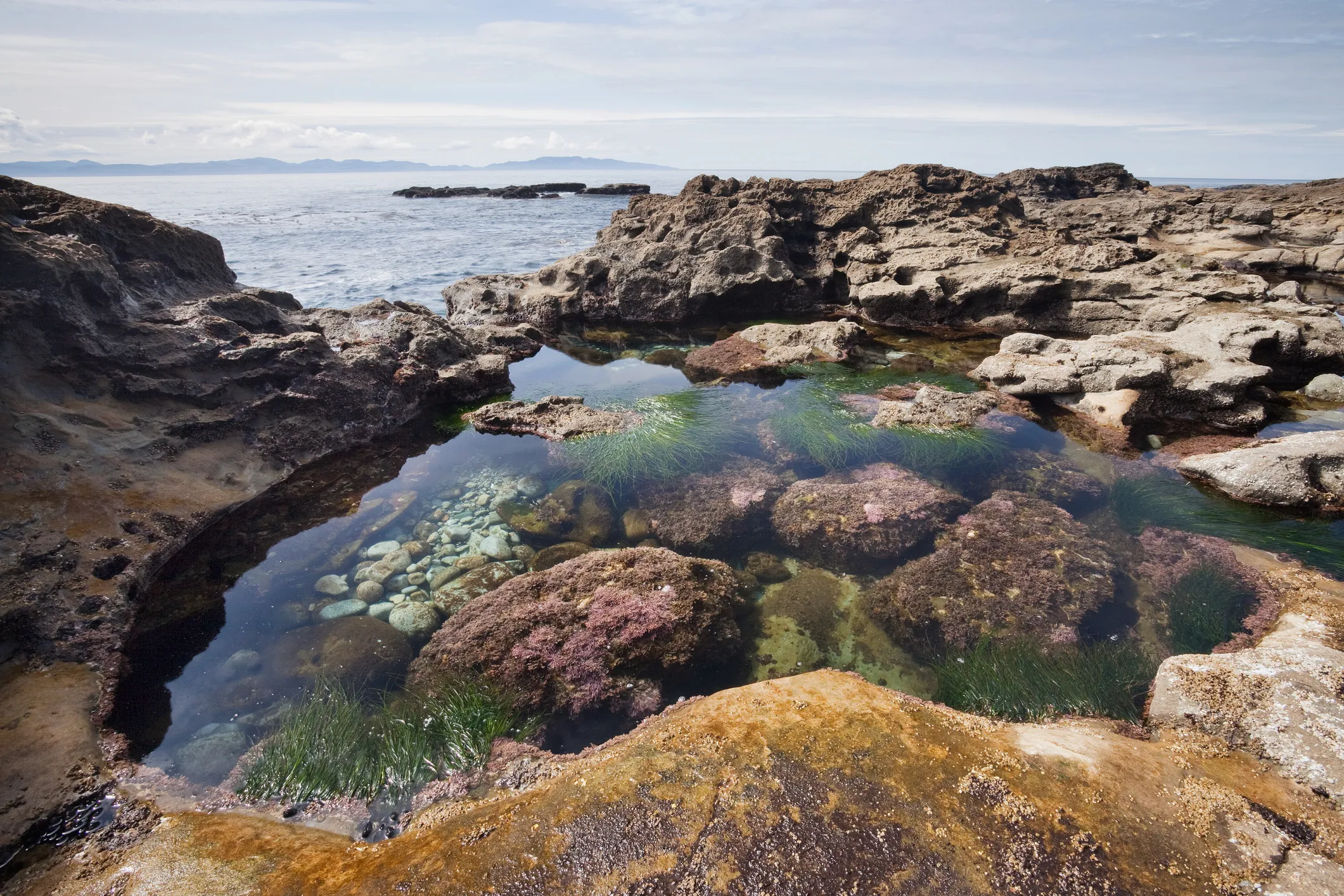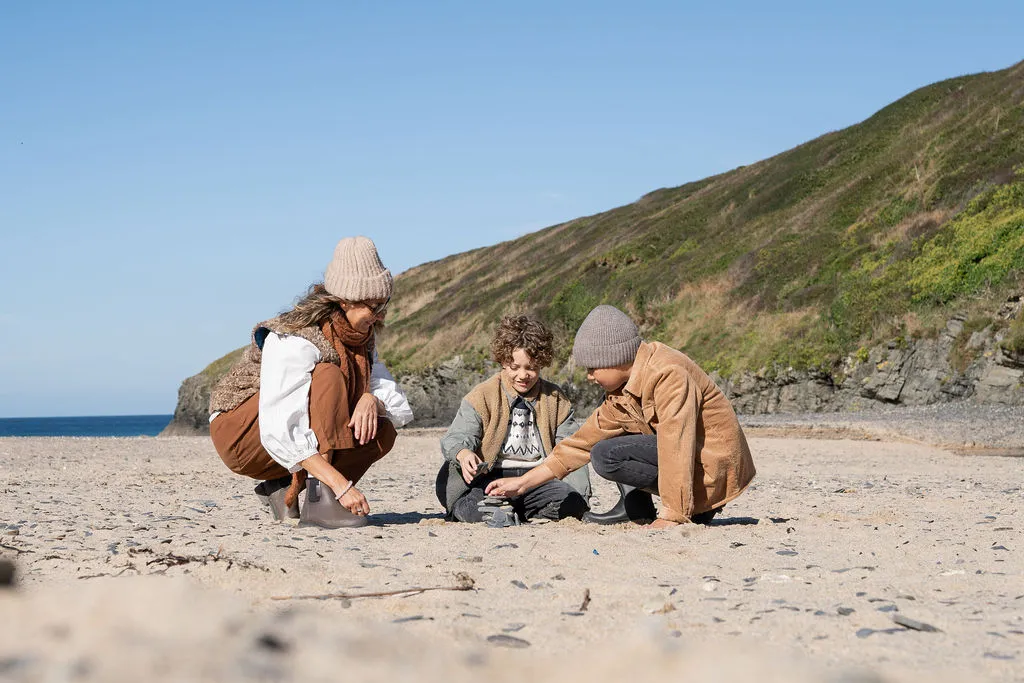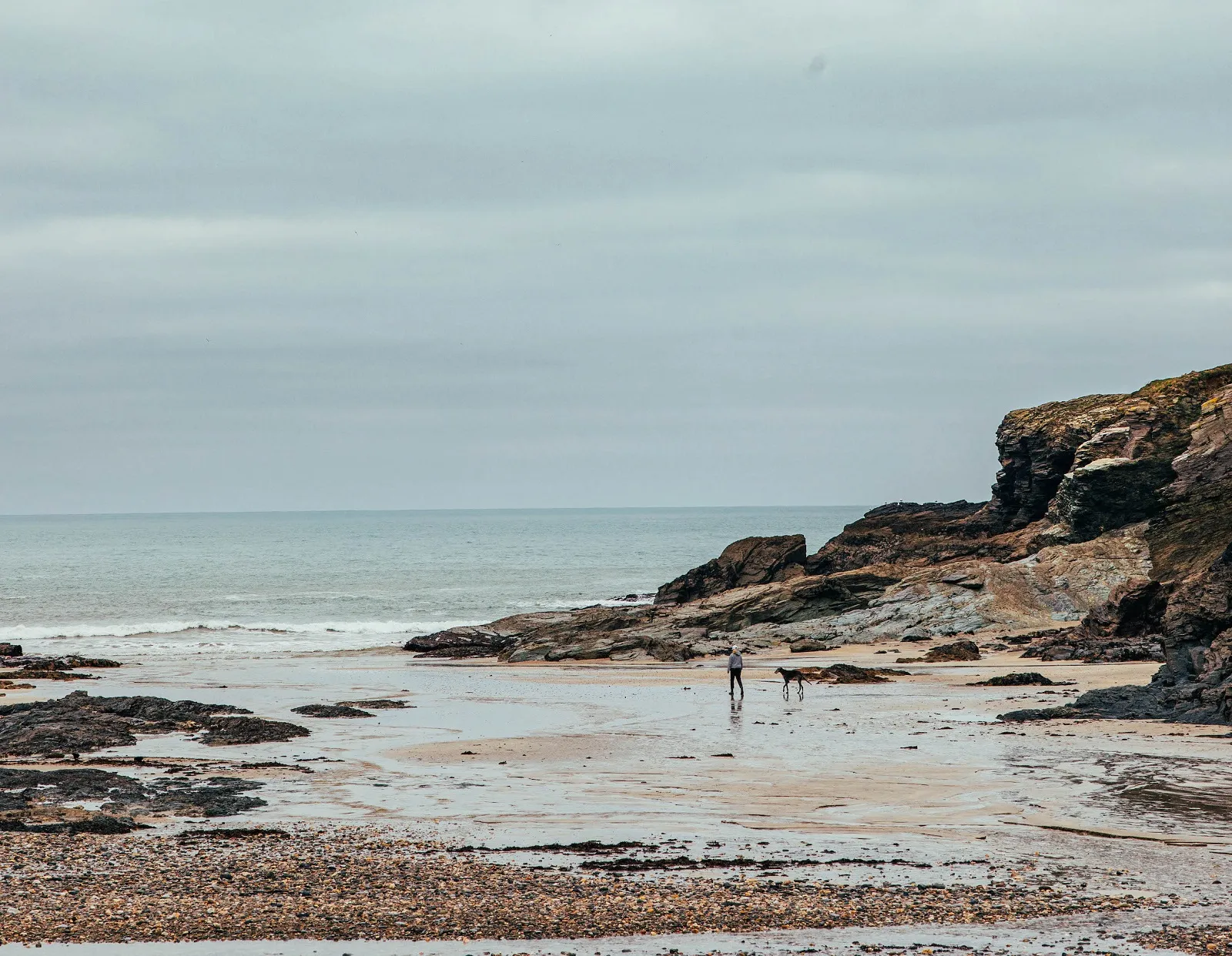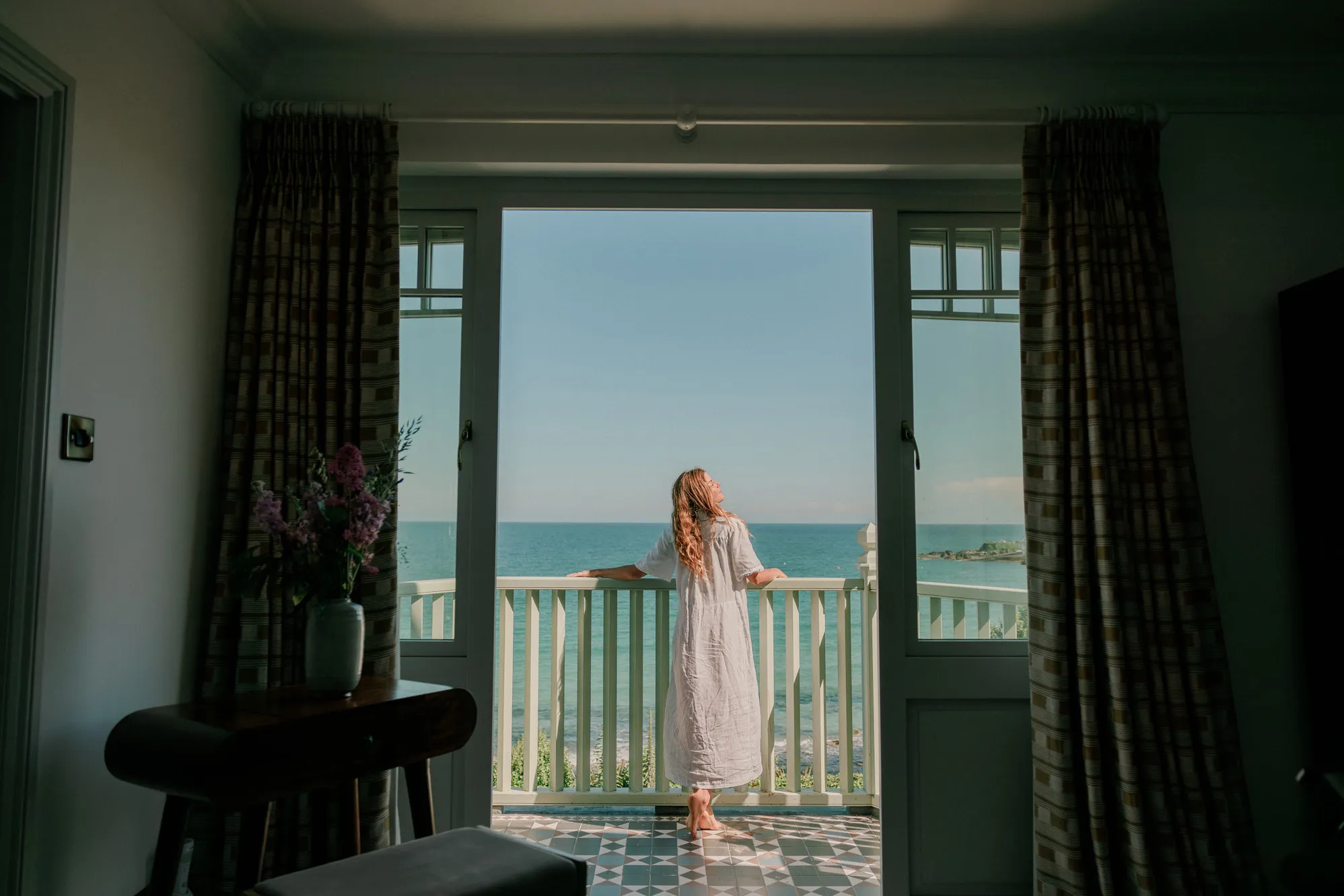Sensory swims
15th June 2022
From annual tradition to daily dose of invigoration, what are the feelings and benefits of outdoor swimming? We spoke to three swimmers about where and why they swim…
Waves have a time-honoured way of beckoning swimsuited humans to them, whether it’s joining in with the summer holiday swimmers or that freezing, giddying, in-out dash at Christmas and New Year. Then there are those who cannot imagine life without immersing themselves in cold saltwater as part of their weekly or even daily routine.
Sea swimming can offer much to swimmers: a free exercise activity, a refreshing plunge to put the day into perspective, a connection with a marine environment we’re often estranged from.
Fancy staying in a holiday retreat with a swimming pool? Check out our cottages with a swimming pool for a relaxing getaway.
Some studies show that regular exposure to cold water through sea swimming has proven to keep depression and anxiety at bay by stimulating the senses and energising swimmers with a hit of endorphins.
When it comes to the positive effects on cognitive health, Professor Giovanni Mallucci from the University of Cambridge has even drawn a possible link between cold water swimming and a delay in developing neuro-cognitive disease, as the low temperatures provoke the production of a “cold-shock” protein RBM3 which early research suggests offers protection against the onset of dementia.
But it can seem daunting and exposing to don a swimsuit, or wetsuit, and submerge ourselves in coastal waters at first. What is it about cold water swimming that makes it so addictive and integral to life for so many?
“Jumping in the sea offered me the maximum respite and escapism achievable in the 20 minutes I felt I could spare.”
Being in the water
Sarah Walsh, a 51-year-old mother of three started the Perranporth branch of the Bluetits swimming group with fellow group member Sophie Reeves. She swims in the open sea, or the tidal pool, at Perranporth, or along the coast near Crantock.
Want to stay in Perranporth? Check out our luxury holiday lets in Perranporth.
“Sea swimming is a very spiritual experience for me. I do love the silence of being in the sea and underwater. My body feels free and childlike. I feel very at one with the environment. It clears my thoughts and resets me for the rest of the day,” says Sarah.
Paige Payne is part of the team at inclusive swimwear brand Soul Cap, created to help open-up swimming for all. Her favourite outdoor swimming spot is Hampstead Ponds in London. “Swimming out in the open with nature is blissful and freeing. Hearing birdsong in the trees, feeling the water touching my skin, and the sounds of water are so therapeutic,” says Paige.
“Even long after I leave the water, my body feels good inside.”
Chloë Peglau, who lives in Leeds but grew-up in Falmouth, takes a dip at Gyllyngvase beach when she is back in Cornwall.
“It’s a full body experience. It can be quite painful but for me it’s the best experience, especially after I’ve done a longer, more physically exerting cold water swim without a wetsuit. You get an elating head rush when you come out and your body feels super strong and empowered,” says Chloë.
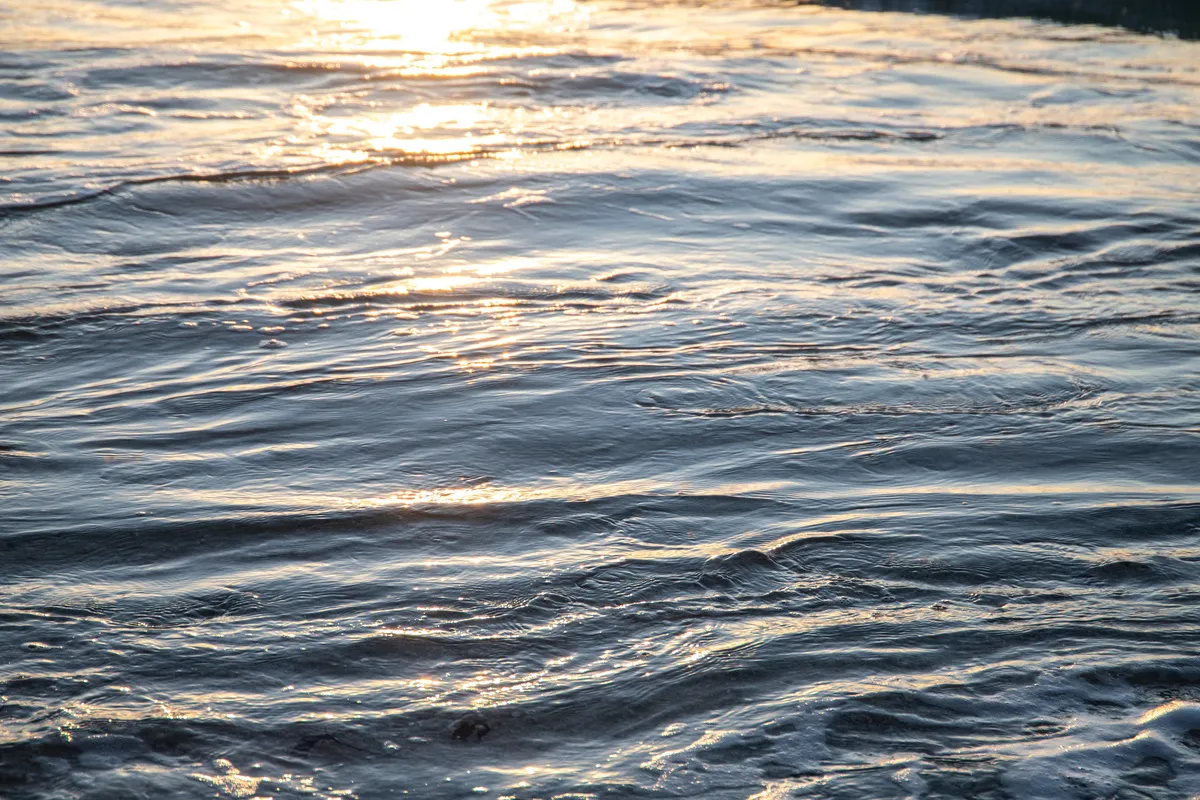
Image credit: Amy Bullock @amsbullock
Free feelings
Paige describes a similar feeling from being in the sea: “Physically, sea water makes you feel great when you are active in it. Even long after I leave the water, my body feels good inside,” she says.
Sarah found sea swimming to be a valuable physical and mental activity when she started Bluetits. “Being peri-menopausal, that first wave going over my head and washing everything away helped with hot flushes.
“Around the time of starting the Bluetits, my role had changed suddenly from an active working mother to a full-time carer for a teenager suffering severe mental illness. Jumping in the sea offered me the maximum respite and escapism achievable in the 20 minutes I felt I could spare.”
“The sea is a great leveller and we all have a love of cold water swimming in common. I have made long-lasting friendships and reignited old friendships.”
For Chloë, the invigorating experience of sea swimming is simply a long-held affinity: “I’ve just been swimming in the sea my whole life since I was young so I don’t ever reflect on its effects on me. It’s just something I do and that I like to do.”
Swim together
Swimming alone can be daunting, particularly when swimming further from the shore into open water. Lots of cold water swimmers swim together informally or in organised groups.
Of her group, Sarah says: “It’s very supportive – and hilarious! Also inspirational and moving to see people conquer fears and achieve amazing things. The sea is a great leveller and we all have a love of cold water swimming in common. I have made long-lasting friendships and reignited old friendships. It has been an amazing experience.”
“Sea swimming can mean meeting people of all ages and exchanging different life experiences,” adds Paige.
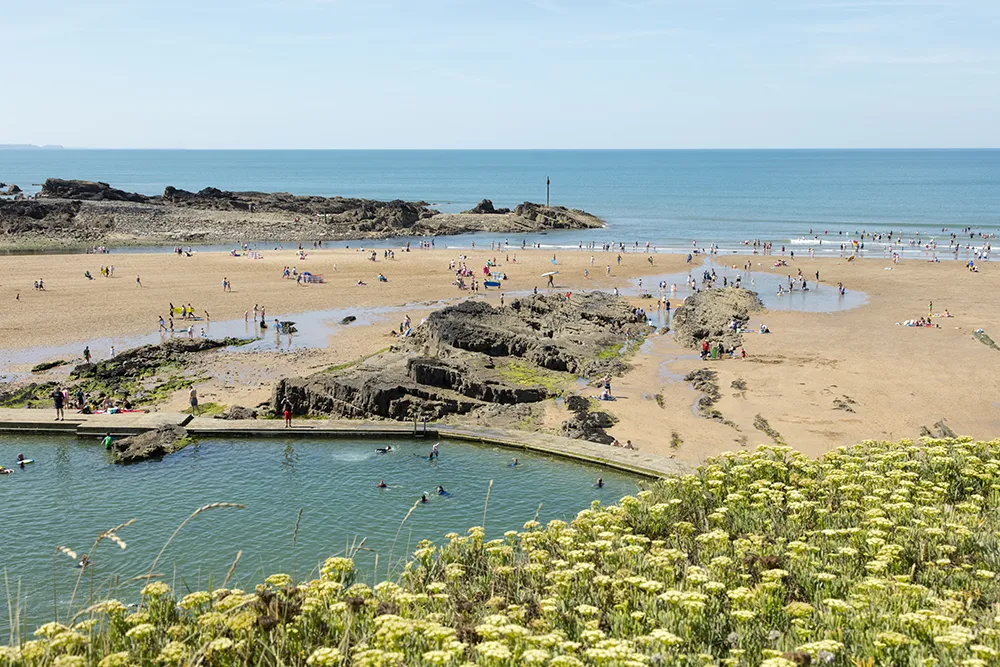
Taking the plunge
“Everyone has a different reason for not feeling confident in water,” says Paige. “This could be beliefs, money, hair etc. As small as these things can seem, they can have a massive impact on people’s relationship with the water.”
For Chloë, having confidence in the pool is essential before putting your stroke techniques to test in the sea. It’s important to check conditions and find out about tidal patterns wherever you take the plunge. The best place to go, particularly if you’re new to sea swimming, is lifeguarded beaches, with lifeguards able to tell you all about local conditions.
“Don’t go out for too long, that’s the important thing,” says Chloë. “Go in and come back out when you’ve warmed up; don’t stay in the water long enough to get cold again. It can take a long time for your body to warm up once you’re out of the water.”
You can find more information on swimming outdoor this summer on the Outdoor Swimming Society website and from the RNLI.
Find your place by the sea to experience the sea as a swimmer…
Experience the mesmerising allure of the sea with the sensational sea, where each moment is immersed in the beauty and tranquillity of coastal living.
